There has been much talk about Corruption in Jamaica with the rise of the “White-Collar Crimes or theft” in Jamaica. Recently, Janie McEwan submitted a Letter to the Gleaner, which was “Letter of the Day on January 18, 2022, defining White-Collar Crimes, from a sociological perspective, as a product of the societal and cultural norms that shape the behavior of individuals and organizations. Jamaica, like many developing countries, has a culture of corruption that is deeply ingrained in its society. This culture of corruption can be seen in the widespread acceptance of bribes, embezzlement, and other forms of white-collar crime as a normal part of doing business,” See Janel McEwan in Letter of the Day | The impact of white-collar crime on Jamaica | Letters | Jamaica Gleaner (jamaica-gleaner.com) January 18, 2023.
Three students, Tyrese Harrison, Sanshia Hayles and Sasha-Gaye Robinson in a group submitted a brief essay on Corruption in Jamaica by reviewing the film “Cost of Corruption” a 2011 documentary film by the National Integrity Agency (NIA) Hosted by Executive Producer, Prof. Trevor Monroe. We may blame Jamaica’s stagnation on the Neoliberal Regime of the Washington Consensus, but Trevor Monroe agrees but also places blame on the Corrupt Politicians and leaders. In fact, The Jamaica Gleaner reported a story on “Crooked Politicians on UK Radar,” reporting that the former UK Ambassador to Jamaica had found widespread levels of corruption within Jamaica within the Government. These budding and young academics, who are developing their ideas and ability to comment and formulate opinions around current issues in the Caribbean within its postcolonial past, begin their commentary with a bold statement from the film about Corruption in Jamaica:
“The politicians are more interested in getting in and or staying in power, than they are in delivering on the promises that Jamaicans need”, (The cost of corruption, 2012). The documentary Cost of Corruption is one that highlights corruption at its highest in Jamaican society. This film was used to portray barriers that are preventing Jamaica from reaching its potential of prosperity that in the late 1950s to 1963 was in close proximity to the developing society….”
They continued writing that:
“Corruption certainly didn’t start here on our island paradise, however, over the years it has certainly found a home. In fact, it has been among us so long that it is openly accepted and ignored by the majority of the population. As seen in the film not only the experts but the commentators have stated that both government systems are corrupted, (The cost of corruption, 2012). Imagine politicians taking from the society that you have sworn to serve and build, would the Jamaica society be how it is today if those 9.5 million dollars was not misused? Currently, our society has scores of uneducated, unemployed, unskilled persons, and a low labor force. If that 9.5 million dollar was used correctly Jamaica could have had more schools, a better education system, children not being forced together like sardines in a tin,”40 students to one teacher”. Indeed, Jamaica could have had a society with better and more educated people, as it was stipulated in the film, Jamaica was on its way to greatness in 3 years with the implementation of technical schools and the College of Sciences. Instead, today Jamaica has high poverty and high crime rates, as Latin America and the Caribbean has revealed that Jamaica now has the region’s highest homicide rate at 46.5 per 100,000 people, (The Gleaner, 2021).
The students concluded that the political will to do anything to effectively combat corruption stems from the fact that,
“The politicians are more interested in getting in and or staying in power, than they are in delivering on the promises that Jamaicans need,” [and negotiated away Jamaica’s economic independence and competitiveness for deals that ensure their own position and advantages at the expense of their own peoples, which McKenzie had explained in greater detail in his book: “Neoliberalism, Globalization, Income Inequality, Poverty and Resistance.” (Palmetto, 2021, Ch. 1-7).]
The documentary Cost of Corruption is one that highlights this neo-capitalistic mentality (Bureaucratic Phenomenon) pointed out by McKenzie when the Commentators, which included Muta Baruka, Dr. Monroe, Prof. Anthony Clayton of the Institute for Sustainable Development at UWI, Chris Zacca, President of the PSOJ, several other notable Jamaicans and regular Jamaicans stated in unison that “corruption is at its highest levels in the Jamaican society.” Moreover, Prof. Clayton explained in the film “Cost of Corruption” that low level corruption was not as rampant as high-level corruption. One respondent in the film asked, “where is the money?” Indicating that Jamaica has received Billions of dollars in aides, investments and loans, yet there have been no significant returns on the island from the investments.
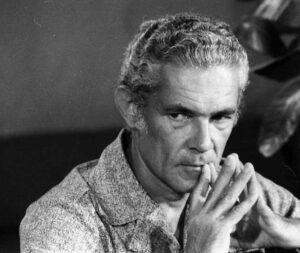
The Late, Hon. Michael Manley, Former PM of Jamaica
However, Michael Manley had argued in an interview shown in the film, “Life and Debt,” that their (his government’s hands were tied in that the funds from the IMF and the World Bank etc.) came with conditionality which prevented the kind of development that Jamaica needed to put Jamaica on a prosperous and competitive path. They had to liberalize their economies by lowering standards, getting rid of unions, lowering social welfare etc. But these still did not explain how the funds were spent or where the funds went. The conclusion may be that the funds were mismanaged or as we pointed out some politicians and local elites got rich and spent the money by travelling to Paris and Miami, and living lavishly while their countrymen suffer.
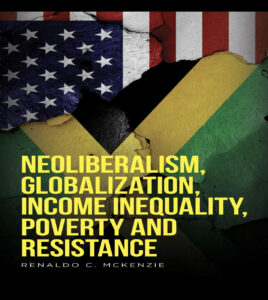
This was the conclusion of Fidel Castro and many Analysts studying Caribbean Political Theory such as McKenzie in the Book, Neoliberalism…, as mentioned above. Therefore, the film seems to have been accurate in its portrayal of barriers that are preventing Jamaica from reaching its potential of prosperity, especially when you think that Jamaica was considered a “Pearl of the Caribbean moving towards Development and a prosperity that rivals its former masters, example in the late 1960s. After independence, Jamaica’s currency equal that of the US. “Cost of Corruption” presents its case using stories from Jamaicans from every aspect of society and data and academic reports to justify its argument that Corruption among its leaders is ignored due to a culture of corruption which seems to characterize many postcolonial states and former subjugated peoples. No one is held responsible because the type of corruption in Jamaica is one that operates mainly within the domain of “The Privilege” – white-collar crimes. The students write that, “These crimes are unnoticed, ignored and have subsequently debilitated Jamaica in all aspects including the society’s socioeconomic status which without a doubt have impacted its people.”
This then leads to the question, Is Corruption or the White-Collar Crimes in Jamaica today a result of Colonization or Colonialism?[1] This is discussed further in Neoliberal Globalization Reconsidered and the Lecture on Caribbean Thought. A draft copy of the discussions that proceed from this is available in Academia.edu
[1] It must be noted that the film “Cost of Corruption” [1] was done in 2011 before Jamaica expanded the NIA which has led to improvements in Jamaica’s Corruption Index since 2018 https://www.state.gov/wp-content/uploads/2019/05/Combatting-Corruption-in-Jamaica-Final.pdf. But due to the COVID Pandemic there has been significant news of rampant corruption. In fact, the UK government had several politicians on their corruption radar. Crooked Politicians On UK Radar, The Neoliberal Corporation or in The Jamaica Gleaner.
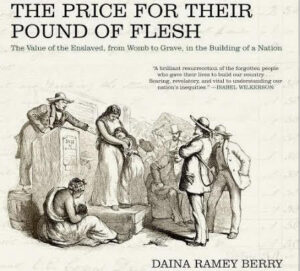
Dana Berry’s Book: Price for Their Pound of Flesh Which explores the value of the Enslaved in the building of the Nation during Colonization and up to the postcolonial period in the Americas.
This Short Article is part of a wider document on Corruption and Neoliberal Globalization and a Lecture Presentation to My students at the Jamaica Theological Seminary in Caribbean Thought.
———————————————————————————————————————————————————————————————————
About the Lecturer: Rev. Renaldo C. McKenzie was born in Jamaica and graduated from Jamaica Theological Seminary. He is currently a US citizen, residing in the US and is Author of Neoliberalism, Globalization, Income Inequality, Poverty and Resistance an academic text which was number one on Amazon in Deconstructivist History and Critical Philosophy. The book was reviewed as an erudite analysis of Jamaica’s economic history by Kirkus Reviews. Renaldo’s second academic book, Neoliberal Globalization will be released February 2023 which features contributions from Professor Emeritus, Martin Oppenheimer, Ph.D. of University of Penn and Rutgers University and author of several ground-breaking books. Renaldo is a Doctoral Candidate at Georgetown University and graduate of The University of Pennsylvania (one of the 6 Ivy League Universities in the US) and Creator and Host of The Neoliberal Round Podcast, a global podcast in News Commentary that is top five worldwide in News Commentary. Renaldo is also President of The Neoliberal Corporation, a think tank and Digital Media company that is aimed at serving the world today to solve tomorrow’s challenges through communication which is to make popular what was the monopoly, www.theneoliberal.com. You may follow Renaldo McKenzie on Twitter @RenaldoMcKenzie or on Facebook @Renaldo.McKenzie, LinkedIn @Rev.Renaldo.C.McKenzie and Instagram @RenaldoMckenzie. Renaldo’s work is also available on ResearchGate and Academia.edu.
Email the Lecturer at [email protected] or [email protected].
This article will be discussed on the upcoming episode of The Neoliberal Round available on Monday 1.23.2023 by Noon.
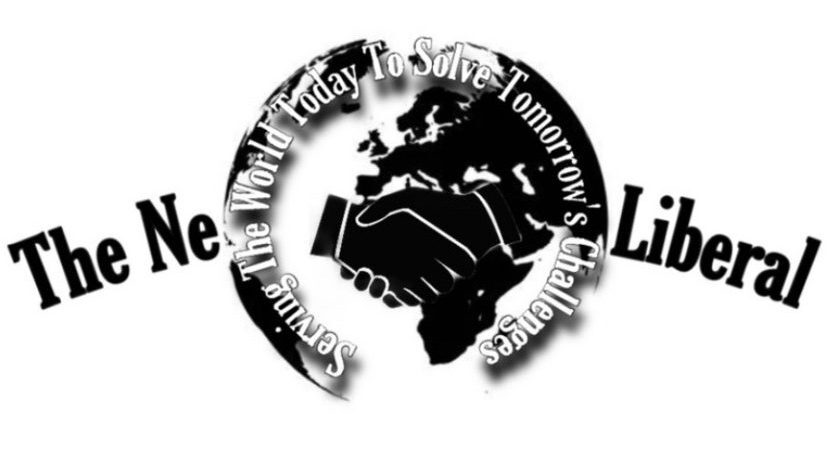
Error: Contact form not found.

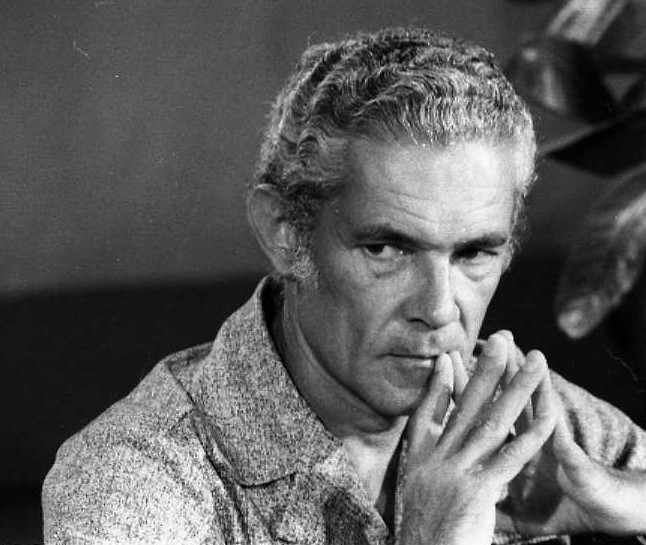
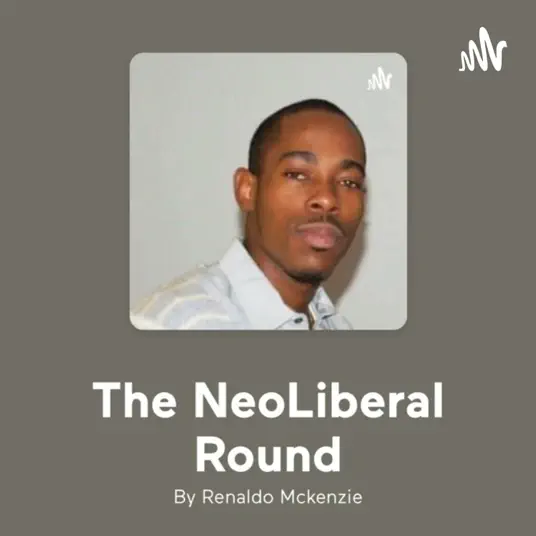
1 thought on “Corruption in Jamaica: Who is to be blamed for the Caribbean’s Demise?”
Comments are closed.